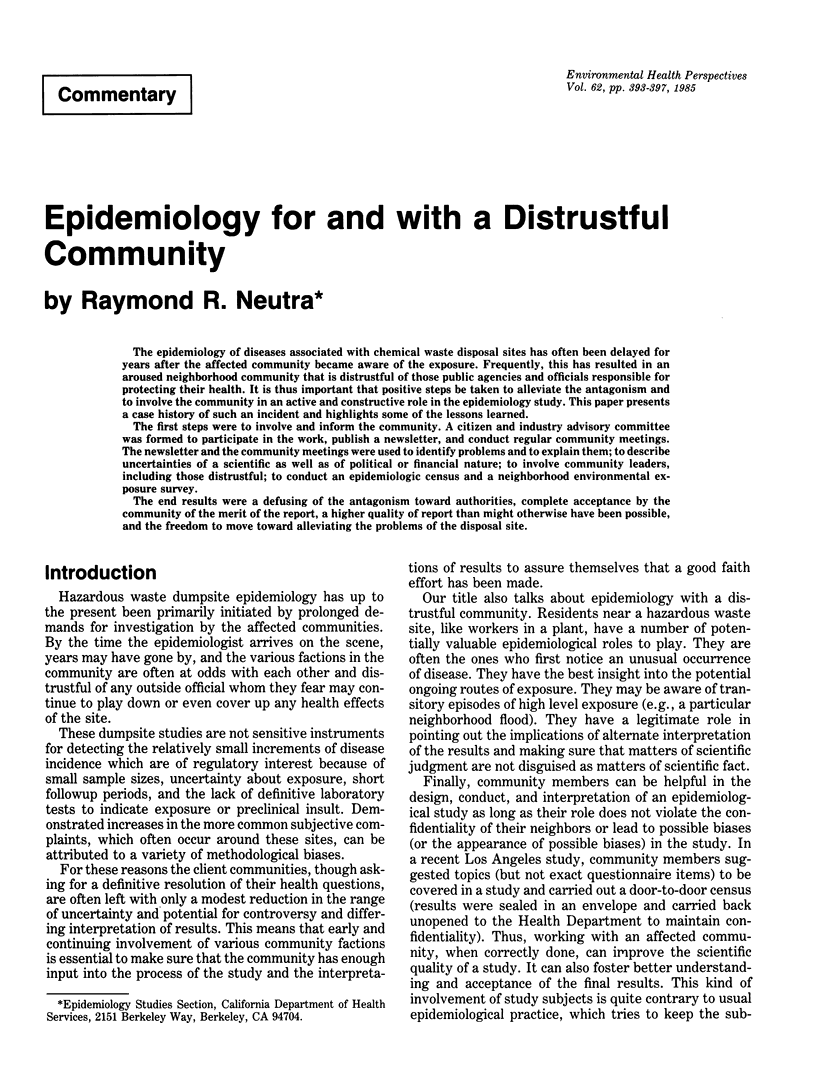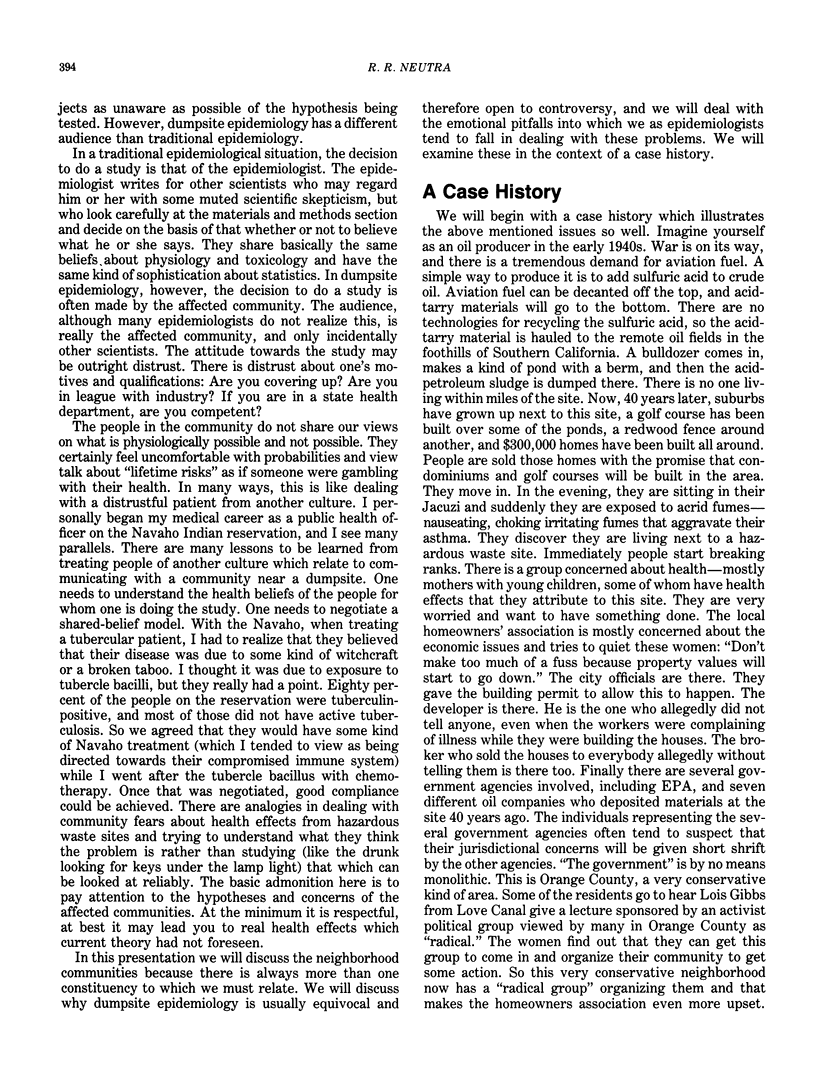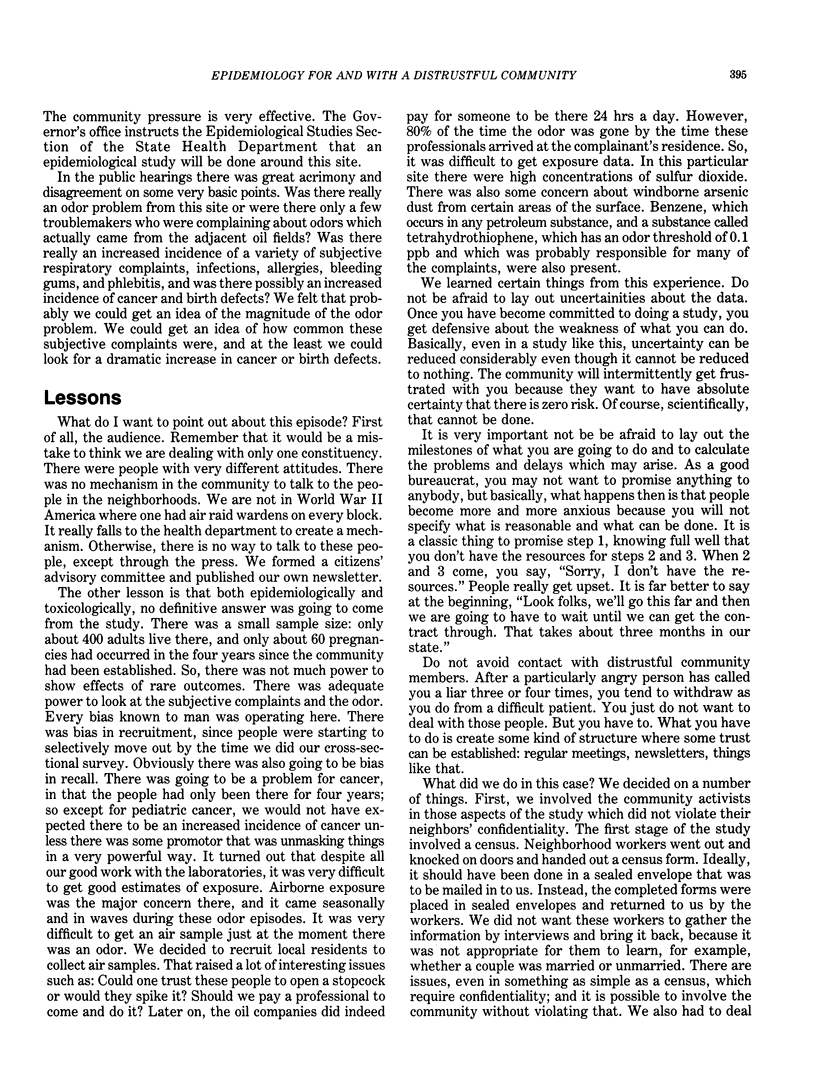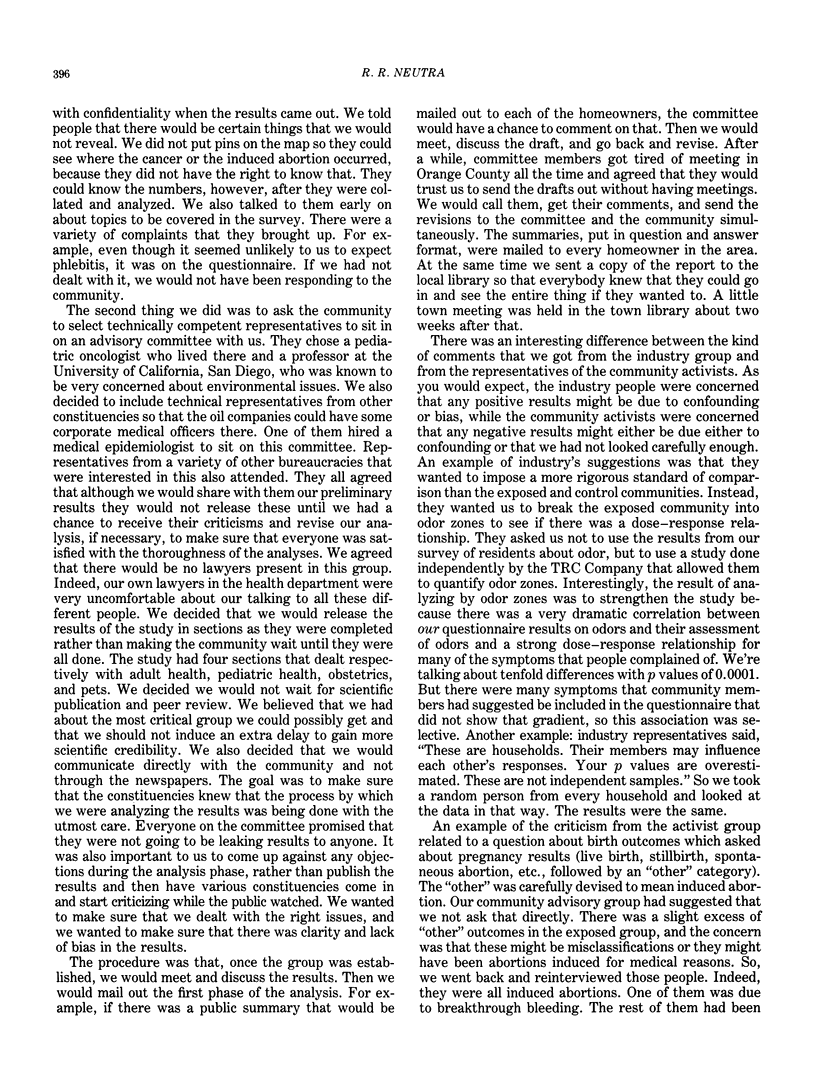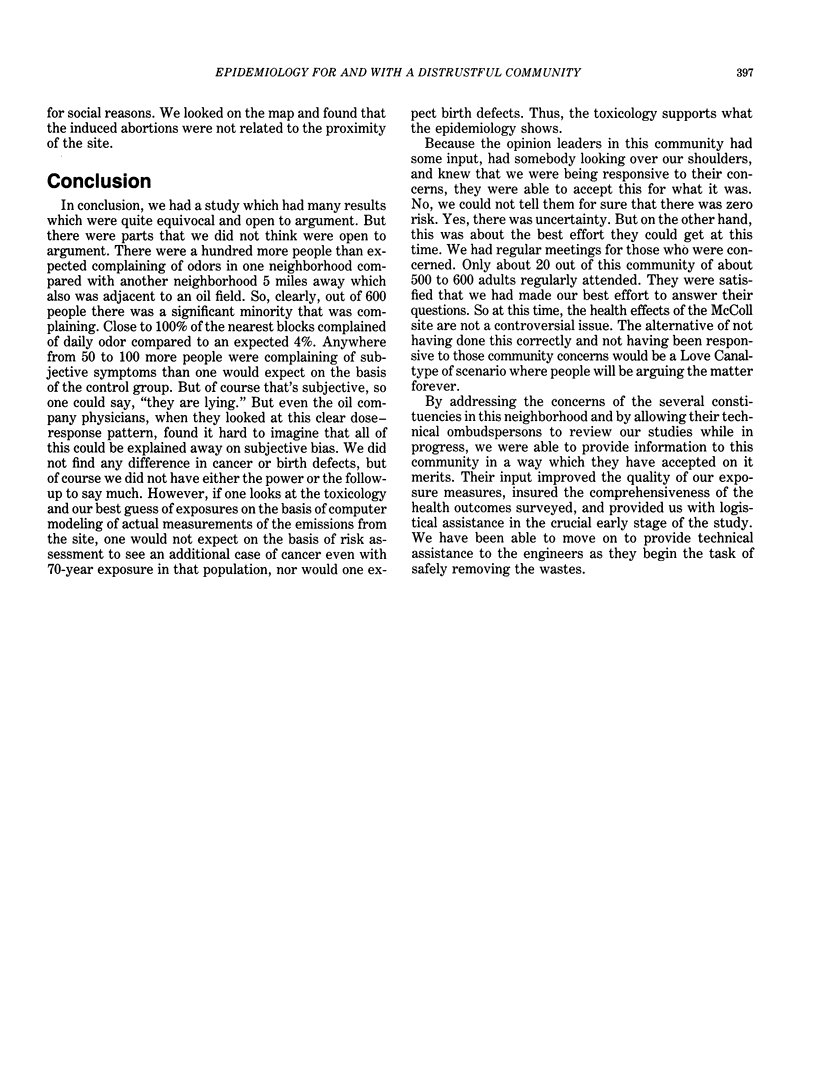Abstract
The epidemiology of diseases associated with chemical waste disposal sites has often been delayed for years after the affected community became aware of the exposure. Frequently, this has resulted in an aroused neighborhood community that is distrustful of those public agencies and officials responsible for protecting their health. It is thus important that positive steps be taken to alleviate the antagonism and to involve the community in an active and constructive role in the epidemiology study. This paper presents a case history of such an incident and highlights some of the lessons learned. The first steps were to involve and inform the community. A citizen and industry advisory committee was formed to participate in the work, publish a newsletter, and conduct regular community meetings. The newsletter and the community meetings were used to identify problems and to explain them; to describe uncertainties of a scientific as well as of political or financial nature; to involve community leaders, including those distrustful; to conduct an epidemiologic census and a neighborhood environmental exposure survey. The end results were a defusing of the antagonism toward authorities, complete acceptance by the community of the merit of the report, a higher quality of report than might otherwise have been possible, and the freedom to move toward alleviating the problems of the disposal site.
Full text
PDF